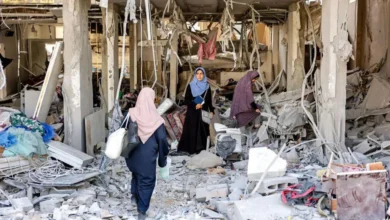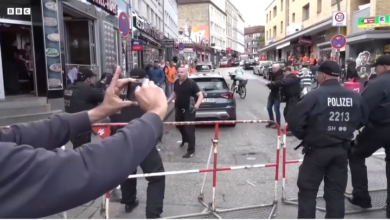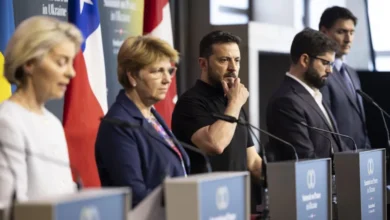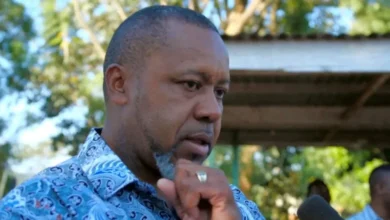
Egypt’s former President Mohammed Morsi, ousted by the military in 2013 after one year in office, has collapsed in a courtroom and died, officials say.
A top figure in the now-banned Islamist movement Muslim Brotherhood, Morsi had just addressed the court from a cage at a hearing on charges of espionage.
Morsi, who was 67, had been in custody since his removal after mass protests.
The Muslim Brotherhood said the death was a “full-fledged murder” and called for crowds to gather at the funeral.
Activists and his family had long complained about his prison conditions, saying Morsi was not receiving treatment for serious health problems such as high blood pressure and diabetes, and was constantly being held under solitary confinement.
What happened in court?
Morsi collapsed moments after addressing the court in Cairo at a hearing related to charges of espionage emanating from suspected contacts with the Palestinian Islamist group Hamas, which had close ties to the Muslim Brotherhood.
He spoke for five minutes from a soundproof glass cage which officials said was designed to prevent him disrupting proceedings. The cause of death was not immediately confirmed but Egypt’s public prosecutor said an initial report showed no signs of recent injuries on the body.
Last month, his family said authorities had repeatedly denied access to him and that they knew little about his health conditions, a situation that “violate[d] constitutions applied all over the world”.
In March last year, his youngest son, Abdullah, said officials were “doing this on purpose, since they want to see him dead ‘from natural causes’ as soon as possible”.
Morsi, who became Egypt’s first democratically elected leader after winning polls in 2012, had already been sentenced to more than 45 years in prison in three separate trials, including leading an outlawed group, detention and torture of anti-government protesters and leaking state secrets.
He had always rejected the authority of the courts, and his supporters denounced the trials as politically motivated and attempts to give legal cover to a coup based on unreliable witnesses and scant evidence.
What has the reaction been?
The Muslim Brotherhood’s political arm, the Freedom and Justice party, said Morsi’s death amounted to an “assassination”, and urged supporters to demonstrate outside Egyptian embassies around the world.
“They placed him in solidarity confinement throughout his detention which exceeded five years, prevented medicine and provided poor food… They prevented doctors and lawyers and even communicating with his family. They deprived him from the simplest human rights.”
President Recep Tayyip Erdogan, who was a close ally, said Morsi had become a “martyr” and he blamed Egypt’s “tyrants” while the Emir of Qatar, Sheikh Tamim bin Hamad Al Thani, another ally, expressed his “deep sorrow”.
Crispin Blunt MP, who led a panel of British MPs and lawyers who had warned about Morsi’s health, called for a “reputable independent international investigation”, and said Egypt’s government had a “duty to explain his unfortunate death”.
Who was Morsi?
Morsi was born in the village of El-Adwah in the Nile Delta province of Sharqiya in 1951. He studied Engineering at Cairo University in the 1970s before moving to the US to complete a PhD.
He was chosen as the Muslim Brotherhood’s presidential candidate for the 2012 election after the movement’s preferred choice was forced to pull out. During his turbulent year in office, Morsi was accused of mounting an Islamist coup and mishandling the economy.
Public opposition to his government grew and millions of anti-government protesters took to the streets across Egypt to mark the first anniversary of the day he took office, on 30 June 2013.
On 3 July, the army suspended the constitution, announced an interim government ahead of new elections and detained Morsi, who denounced the move as a coup. Abdul Fattah al-Sisi, then army chief, was elected president in 2014.
Authorities then launched a crackdown on his and Muslim Brotherhood supporters, hundreds of people have been killed and thousands others detained as a result.
BBC News






